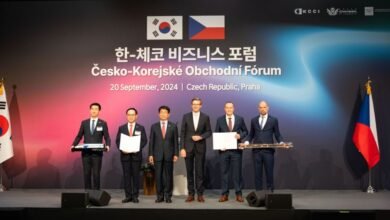Advent Technologies signs technology assessment agreement with automaker
MEAs are the most important components of a fuel cell as they greatly define the performance, lifetime, weight, and cost of the end system.

Advent Technologies Holdings, Inc. has signed a technology assessment agreement with a second large global automotive manufacturer.
With a common goal of sustainability and the faster decarbonization of the US automotive industry, Advent is supporting efforts to advance innovative fuel cell technology as a sustainable and efficient option for achieving carbon neutrality. More specifically, Advent will assist through:
- Supplying Membrane Electrode Assemblies (MEAs) for testing, evaluation, and optimization under the collaborator’s conditions.
- Providing support on MEA operational parameters while the collaborator supplies feedback to Advent on performance and durability.
- Sharing technical know-how for fuel cell stacks, proprietary HT-PEM technology, and leveraging HT PEM for advanced cooling systems.
One of the primary objectives will be to conduct a detailed assessment of Advent’s proprietary HT-PEM technology and newly launched MEAs for consideration of future opportunities. Contingent upon the successful execution of the first phase of the project, the companies will work to establish a Joint Development Agreement governing, among other things, specific product requirements, goals, milestones, and plans.
The new Advent MEAs to be tested as part of this project are currently being developed within the framework of L’Innovator, Advent’s joint development program with the US Department of Energy’s Los Alamos National Laboratory, Brookhaven National Laboratory, and National Renewable Energy Laboratory.
Advent MEAs operate at high-temperature (80oC to 240oC) while the incumbent LT-PEM technology is limited to below 100oC. High-temp operation is essential for efficient heat removal in heavy-duty mobility applications, making HT-PEM an ideal technology for trucks, aviation, and marine. Furthermore, Advent MEAs can work with impure hydrogen, which can be reformed onboard from methanol, natural gas, and other renewable fuels, and are resilient to extreme temperature, humidity and air quality conditions.
Dr Emory De Castro, Advent’s Chief Technology Officer, said, “MEA is the heart of the fuel cell and a critical component used in fuel cells and other electrochemistry applications such as CO2-free hydrogen production and energy storage.”
